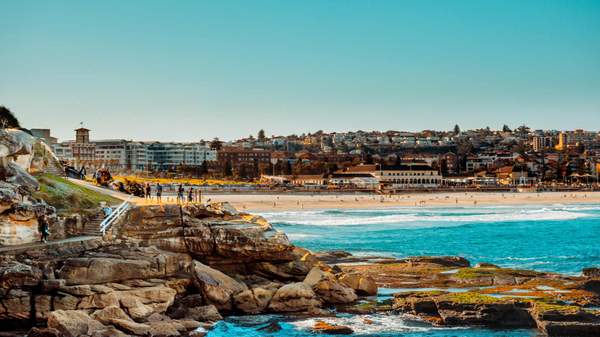Overview
Almost a month after Queensland closed its borders to Greater Sydney, the Sunshine State is now shutting down to all of New South Wales. From 1am on Friday, July 23, the entirety of NSW will be declared a hotspot for four weeks, meaning that its residents won't be permitted to enter the Sunshine State — unless they qualify for an exemption, or live in an area that's been classified a border zone.
It's a familiar process; whenever an Australian state experiences a new COVID-19 outbreak, a few things tend to happen, as we've all seen over the past 18 months — and this is one of them. As cases grow, restrictions are implemented, masks are mandated and other parts of the country start closing their borders. Usually, the latter happens incrementally, starting with banning folks from certain areas, then moving onto the entire city, and then the whole state if necessary.
The fact that it has taken almost a month for Queensland to close its borders completely to all of NSW is a little surprising; however, the former's authorities have continually said that they've been guided by the latter's regional case numbers. The decision to declare all of NSW a hotspot now has also been motivated by changing restrictions, with the Sunshine State loosening its gathering and venue rules from 6am on Friday, July 23.
So, if you're a Queenslander with a trip to NSW in your future (or vice versa) the pandemic has definitely interrupted your plans. Folks who've been in NSW will no longer be permitted to enter Queensland, other than in a few circumstances. Queensland residents coming home will need to go into hotel quarantine for 14 days — and non-residents will only be allowed to enter if they receive an exception, and will also need to go into hotel quarantine for a fortnight. Plus, everyone going to Queensland will need to complete one of the state's online travel declarations first, after that system was brought back into effect last month.
There will be some exceptions, however, including in the border zone. "It will allow people to move around those communities for essential reasons, all the things that you would expect like to go to school to go to work, for health care or to care for others," said Deputy Premier Steven Miles, announcing the news.
The border zone will include the Ballina, Bourke, Brewarrina, Broken Hill, Byron, Clarence Valley, Glen Innes Severn, Gwydir, Inverell, Kyogle, Lismore, Moree Plains, Richmond Valley, Tenterfield, Tweed, Unincorporated Far West and Walgett Local Government Areas and regions.
For the state as a whole, it's possible that the hotspot declaration and border closure could be reviewed before the four-week period is up, although that'll depend on NSW case numbers.
For more information about Queensland's COVID-19 border restrictions, or about the status of COVID-19 in the state, visit the Qld COVID-19 hub and the Queensland Health website. For more information about the status of COVID-19 in NSW, head to the NSW Health website.
